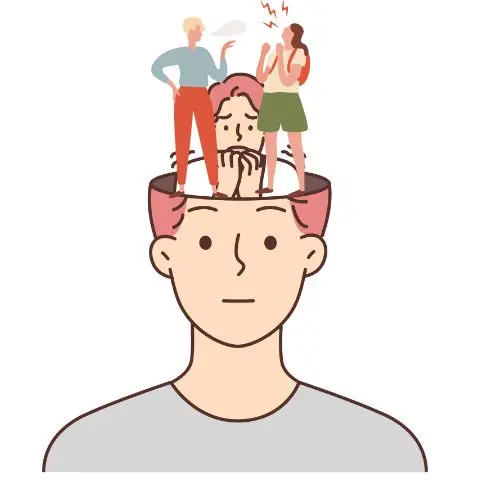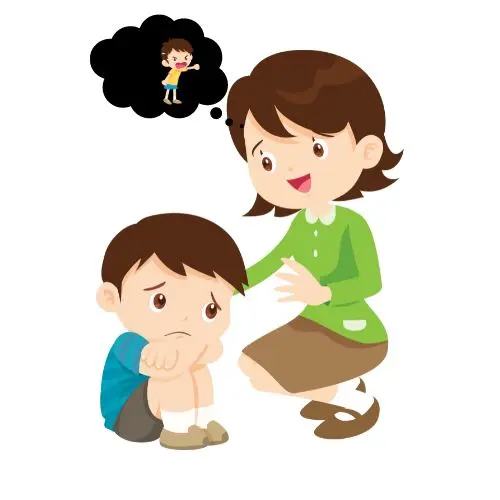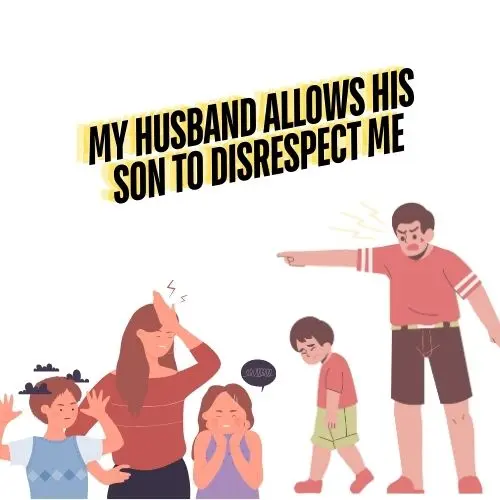Introduction
The difficulty of disrespectful conduct from kids closer to their dad and mom has emerged as disturbingly commonplace in lots of homes across America. When “my husband permits his son to disrespect me,” it creates a bad family dynamic with some distance-accomplishing consequences. However, addressing disrespect early and setting up clear obstacles can assist in cutting down on these toxic effects and getting the circle of relatives back on the right track.
The Toxic Impact of Child Disrespect on Families
| Estimated Number of American Families Affected by Child Disrespect Annually | Over 2 million |
| Increase in Divorce Rates when Children Disrespect a Parent | 46% higher than average |
| Decrease in Mental Well-being for Mothers who Experience Child Disrespect | 28% below same-aged peers |
| Increase in Behavioral Issues for Children who Disrespect Parents | 45% more likely to engage in criminal acts |
What is Considered Disrespect?

Before delving similarly, it is essential to outline what constitutes disrespect in a figure-baby relationship. Disrespect does now not mean that youngsters are by no means irritated with or pissed off with the aid of their mother and father at times, as all families will enjoy normal conflicts that get up during early life development. Rather, disrespect refers to intentional behaviors, phrases, or attitudes undermining a discern’s authority and position within the family. Some commonplace examples of disrespect encompass:
- Deliberately ignoring or refusing reasonable requests/instructions from parents.
- Yelling, screaming, or swearing at parents in anger
- Making demeaning, insulting, or belittling comments directed at parents
- Physical threats or actions toward parents, such as hitting, kicking, or throwing objects
- Treating parents without basic courtesy, empathy or gratitude for their care and support
The Toxic Ripple Effects on Family Members
When unchecked, disrespect can cause immense harm and dysfunction within the family structure. Some of the widespread toxic consequences include:
Erosion of the Parent-Child Relationship – When a child loses respect for their parent(s), it becomes nearly impossible to enforce discipline, provide effective guidance or spend quality bonding time together. Resentment and distrust build on both sides.
Increased Mental/Physical Stress on Mothers – Research shows that mothers experiencing high levels of disrespect feel extremely overwhelmed, depressed, anxious and hopeless about their abilities as parents. Some even develop serious health issues from chronic stress.
Damage to Marital Bond – Constant disrespect targeted at one parent, especially if the other parent does little to intervene, inevitably leads to frustration, anger and cracks within the marriage. This can potentially end in divorce.
Modeling of Disrespectful Behavior – Witnessing a child disrespect a parent regularly normalizes that behavior. It increases the odds that siblings or friends of the child will mimic it in their relationships.
Delinquent Behavior in At-Risk Youth – Studies link childhood disrespect strongly to issues down the road like criminality, drug abuse, school failures and violent tendencies as these youth struggle with authority figures and poor impulse control.
When my husband allows his son to disrespect me without consequence in our home, I feel terribly alone, disheartened and angry at the lack of support. However, addressing it correctly as a united team can restore order and prevent massive issues later.
Potential Root Causes of Disrespect

To appropriately handle disrespect, it’s wise to think critically about what potential underlying factors are enabling this behavior. Root causes often stem from:
- Inconsistent discipline – Children learn too fast what behaviors will or won’t be tolerated. Lack of follow-through teaches disrespect goes unchecked.
- Parental arguments – Witnessing parents disrespect each other sets a confusing example for their relationship standards.
-Technology over-use – Screen addiction prevents quality parent-child bonding time and diverts focus toward online “friends.”
-Broken family structures – Divorce, absent parents, new partners entering/exiting lives destabilize a child’s world and undermine the primary parental figures.
-Mental health issues – Conditions like ODD, bipolar disorder, and others can increase defiance if untreated early on.
-Peer influences – Spending extended time with disrespectful friends exposes children to poor social behaviors that may transfer home.
-Deep-rooted emotional/psychological trauma – Past abuse, neglect, food/housing insecurity or other adverse childhood experiences often break down interpersonal trust at a foundational level between parent and child, requiring professional counseling.
Addressing these causal factors, rather than punishing bad behaviors, leads to long-term solutions instead of ongoing instability. Parents can restore order and get kids back on track by working as a team.
Intervention Strategies for Parents

Developing healthy habits takes consistent effort from all parental figures involved. When I feel disrespected, my husband coming alongside me is key rather than dismissing it, as a united approach will be most effective long-term. Some intervention strategies include:
- Open communication to understand triggers for defiance from the child’s perspective. Empathy and perspective-taking curb future conflicts.
- Firmly establishing “House Rules” together and following through with swift, matching consequences each time they’re broken is paramount. “Time Outs” or removal of privileges are common.
- Lead by positive example in your interactions and arguments. Address poor communication habits that may undermine your authority as a role model.
- Schedule regular one-on-one bonding time with each child to strengthen emotional connection and trust before issues arise.
- Monitor electronic devices, social media use, download monitoring apps and screen time limits to curb negative peer influences.
- Seek family counseling if root issues seem serious relating to divorce, trauma histories or potential clinical conditions that you can’t address alone at home. Counselors are highly trained experts.
- Join support groups to gain perspective from others walking similar parenting journeys. Isolation exacerbates stress, while empowerment lifts spirits.
With sincere effort and teamwork between all parents/guardians, disrespectful behaviors can be stopped before the damage spreads too deeply. Restoring order allows kids to thrive with structure and supervision during their developmental years.
Creating Harmonious Homes
Family units experiencing disrespect may feel hopeless at times as toxic cycles seem so entrenched. But with patience, consistency and wisdom in handling conflicts properly each step of the way, harmony can gradually return. When addressing disrespect, every member’s long-term health and development should be the priority focus versus reacting harshly in the moment. Understanding a child’s realities and setting firm, benevolent boundaries, respect, trust, and healthy attachment between parents and offspring can blossom anew.

